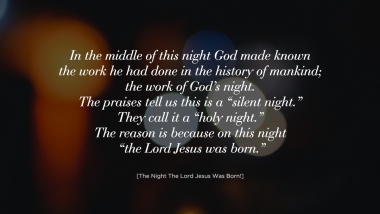
Thanksgiving can take on two forms: one that is deeply felt, which is powerful, and one that is only expressed at a surface level, which is powerless. A true life of thanksgiving always gives thanks and glory to God and positively affects others. Those who do not have true gratitude feel grumpy and unworthy.
God instructed the Israelites, whom he exiled as slaves in Egypt for 430 years, to observe the Feast of Tabernacles to remember the 40 years they lived in the wilderness (Leviticus 23:43). We should remember and be thankful for all the events that the grace of God has enabled in the life of the tabernacle: the 10 catastrophes, the Exodus, turning a rock into a spring water in the wilderness (Psalm 114: 8), guiding Israel through pillars of fire and clouds, and protecting clothes that did not wear out for 40 years -
That is why God kept the feast and said, "Do not appear before the Lord empty-handed," (Deuteronomy 16:16). If we had lived in the Old Testament, we would have to offer rams, goats, and bulls according to the law, but now we don’t have to sacrifice any more as Jesus sacrificed Himself (Hebrews 9:12). Can we, who have received the grace of God, appear with empty hands before God in feasts?
Sincere thanksgiving is to open your hands before God. Opening your hand requires you to be generous, not parsimonious, with your thanks for things God has provided. It is not to give thanks to God with mine, but to give to God with the things God gave us, like David's confession (1 Chronicles 29: 12-16). This year at Thanksgiving Day, please open your hands in joy.
Excerpt from the sermon of Rev. Abraham Park











